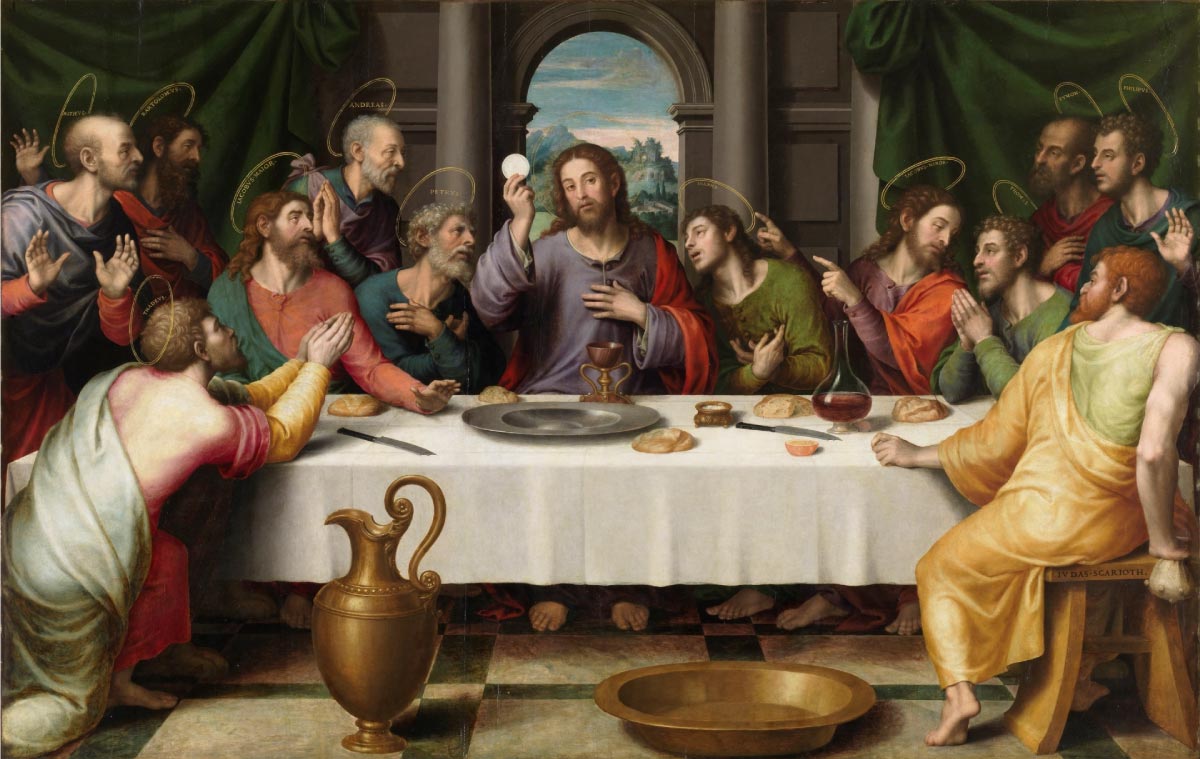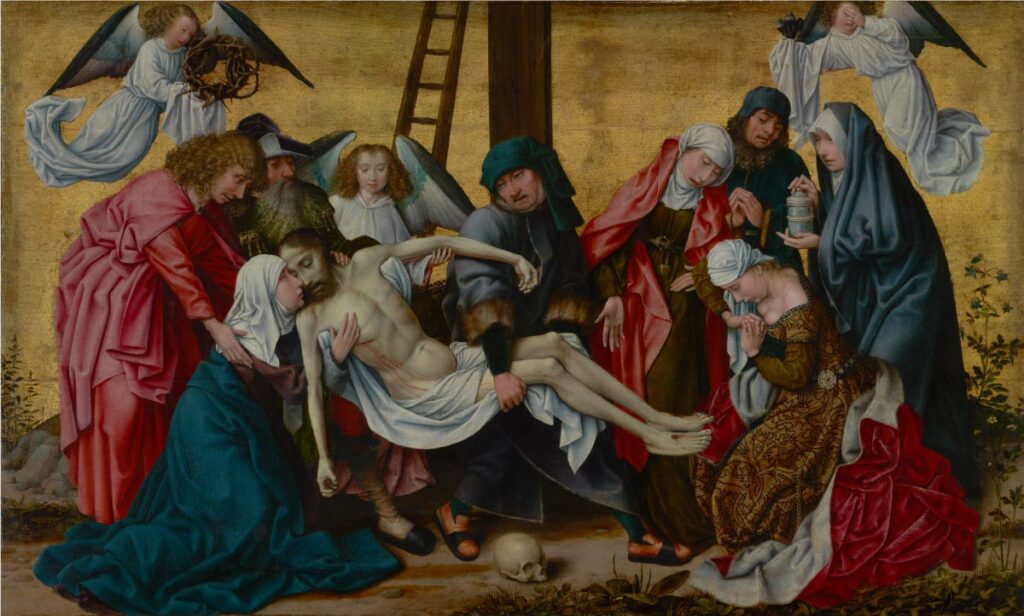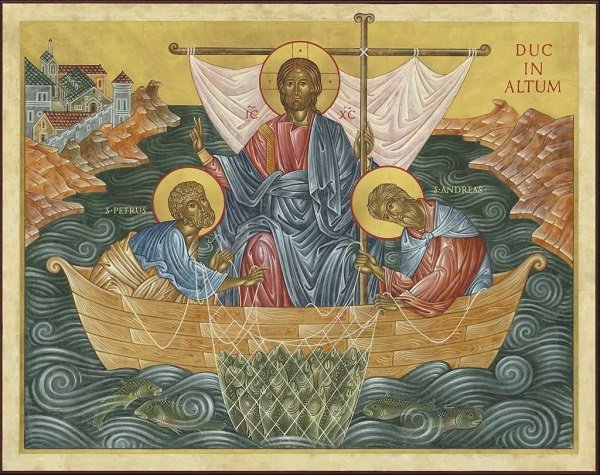In order to properly frame a good answer to this question, it is expedient to first reflect on the meanings and aspects of the key words or phrases in the question. In this case, there are two; “fallen world” and “sacrifice.”
Fallen World
In Catholic theology, the concept of a “fallen world” refers to the state of the world and humanity after the Fall of Man, which is the event in the Bible where Adam and Eve disobeyed God by eating from the Tree of Knowledge of Good and Evil. This act of disobedience fuelled by the same pride that led to Lucifer’s fall, introduced sin and death into the world, fundamentally altering the original state of harmony between God, humanity, and creation. The Fall is seen as the reason for the brokenness and suffering present in the world today that even one who does not possess faith can see clearly around them today and throughout history.
Key Aspects of the Fallen World in Catholic Teaching
Original Sin
This is the doctrine that states that all humans inherit a fallen nature and a tendency to sin through the first sin committed by Adam and Eve. It is a foundational concept in understanding humanity’s need for salvation and grace.
Consequences of the Fall
The Fall resulted in the loss of original holiness and justice, introducing suffering, death, and a disordered nature. Humans now have a propensity to sin, which is called concupiscence.
Redemption
Catholicism teaches that through Jesus Christ’s sacrificial death and resurrection, humanity is offered redemption and the possibility of salvation. The Church plays a vital role in the process of redemption by offering the sacraments, teachings, and community support.
Hope and Restoration
Despite the fallen state of the world, Catholics believe in the hope of restoration and renewal through Christ. The ultimate fulfilment of this hope is the promise of eternal life and the new creation at the end of time.

Catechism of the Catholic Church on the Fallen World
The Catechism of the Catholic Church (CCC) discusses these themes, although it does not explicitly use the term “Fallen World,” but frequently “the fall.” Here are some relevant sections and quotes for further study:
Original Sin and its Consequences
- CCC 396: Discusses the command God gave to Adam and the consequences of disobedience.
- CCC 397-400: Explains the Fall and its effects, such as the loss of original justice and the introduction of suffering and death.
- CCC 404-405: Describes how original sin is transmitted and its impact on human nature.
Humanity’s Need for Salvation
- CCC 402: “All men are implicated in Adam’s sin, as St. Paul affirms: ‘By one man’s disobedience many (that is, all men) were made sinners’: ‘sin came into the world through one man and death through sin, and so death spread to all men because all men sinned.’”
- CCC 407: Describes the wounded nature of humanity and the inclination to evil.
Hope of Redemption and Restoration
- CCC 410: Speaks of the promise of a Saviour immediately after the Fall, which Christians see as fulfilled in Jesus Christ.
- CCC 411: Discusses the protoevangelium, the first gospel that promises redemption.
Role of Christ and the Church
- CCC 457: “The Word became flesh for us in order to save us by reconciling us with God, who ‘loved us and sent his Son to be the expiation for our sins’: ‘the Father has sent his Son as the Saviour of the world,’ and ‘he was revealed to take away sins.’”
- CCC 459: Jesus is presented as a model for humanity to follow in the path of righteousness.
Sacrifice
Sacrifice as a Noun: In this context, “sacrifice” refers to the act or practice of offering something valuable. The earliest use of the word sacrifice derives from the slaughtering of animals in religious contexts. The first records of animal sacrifice can be traced back to the ancient Mesopotamians. Texts and archaeological evidence indicate that offerings of animals were made to deities to gain favour, ensure prosperity, or avert disasters. The Enuma Elish, an ancient Mesopotamian creation epic, references sacrifices and offerings made to the gods.
In Christian theology, this often points to Christ’s sacrifice on the cross, seen as necessary for redemption and reconciliation with God. It can also refer to general acts of self-denial or offering for the benefit of others or spiritual growth. Within Christian theology, sacrifice is often viewed as a means to atone for sins, express love and devotion to God, or achieve spiritual purification.

Back to the Question
The Role of Sacrifice in a Fallen World
Why does a fallen world require sacrifice? As we have established, the Fall was a result of pride and disobedience, casting humanity into a state of sin and rebellion. Why can’t we simply acknowledge our disobedient acts and resolve to do what is right going forward? This is in fact what we do when we confess our sins. Confession involves a volte-face, a complete ‘turning around,’ which is itself a form of sacrifice: the sacrifice of our self-will. It is the surrender of our desires to align with God’s divine will. This might mean sacrificing what seems expedient now for the sake of the future or sacrificing our desires for the sake of others.
In ancient times, the use of animals in sacrifice was far from trivial. Food was scarce, and offering the best of your flock meant giving up something precious in a world without the abundance of food we have today on demand in grocery stores. Similarly, today we are called to offer our best to God, not merely our leftovers. This call to sacrifice can extend to things like our time, talents, and resources. The Catechism of the Catholic Church states, “To the poor and the sick we owe particular charity, so that we may give them what they need… the demands of justice must be satisfied first of all” (CCC 2446). Here, the CCC emphasises that true sacrifice often involves putting others’ needs before our convenience.
The Perfect Sacrifice of Christ
Humanity, in a state of rebellion, cannot return to God without sacrifice. This is a fundamental truth. A perfect man, in a perfect state of grace, would require no sacrifice, as there would be no divide between himself and God. This concept naturally leads to the idea of the “perfect sacrifice.” All human sacrifices fall short because they are inherently imperfect; they cannot completely atone for our sins. The only hope for humanity’s ultimate and eternal redemption was through a perfect sacrifice, one that did not exist on Earth prior to Jesus. Thus, God sent His only Son, Jesus Christ, to become the new Adam, to take the place of sin on the cross.
The Church Fathers frequently spoke of this divine exchange. St. Augustine stated, “There was no other more suitable way of freeing us from this misery: only the incarnation of the Son, and the shedding of the blood of our God” (Sermon 128.2). Jesus took on all of Adam’s sin and the sins of his descendants, from then to the end of time, and through His death and resurrection, offered us the hope of new life. This is encapsulated in the Catechism: “He died for our sins in accordance with the Scriptures” (CCC 601).
Joining Our Sufferings with Christ

Despite Christ’s ultimate sacrifice and redemption, we still inherit the effects of Adam’s sin. As a result, we are called to offer our own sacrifices daily. St. Paul echoes this in his epistle to the Romans, “I urge you, brothers and sisters, in view of God’s mercy, to offer your bodies as a living sacrifice, holy and pleasing to God—this is your true and proper worship” (Romans 12:1).
Our sacrifices, including our sufferings, participate in our redemption by uniting us with Christ’s sufferings. St. Paul writes, “Now I rejoice in my sufferings for your sake, and in my flesh, I am filling up what is lacking in Christ’s afflictions for the sake of his body, that is, the church” (Colossians 1:24). This does not imply that Christ’s sacrifice was insufficient; rather, it invites us to join our sufferings with His as a way to participate in the redemptive process.
St. John Paul II elaborated on this concept in his apostolic letter Salvifici Doloris, where he explained that suffering has been “redeemed” through Christ and can be transformed into a source of grace when united with Him. He wrote, “In the cross of Christ not only is the Redemption accomplished through suffering, but also human suffering itself has been redeemed. Christ—without any fault of his own—took on himself ‘the total evil of sin.'”
St. Teresa of Ávila, known for her profound spiritual insights and personal experiences of suffering, also taught that suffering embraced with love and patience becomes a means of deep union with God. She believed that through suffering, one could learn humility and reliance on God’s strength rather than their own. Teresa famously said, “Suffering is a great favour. Remember that everything soon comes to an end… and take courage. Think of how our gain is eternal.”
St. Thérèse of Lisieux, often called the “Little Flower,” emphasised the importance of offering even small sufferings as acts of love to God. She wrote in her autobiography, Story of a Soul, “I understood that every flower created by Him is beautiful, that the brilliance of the rose and the whiteness of the lily do not lessen the perfume of the violet or the sweet simplicity of the daisy… so it is in the world of souls, our Lord’s living garden.” St. Thérèse uses the metaphor of different flowers to illustrate the idea that every soul is unique and beautiful in its own way, much like how different flowers have their own unique beauty and fragrance. This metaphor underscores the concept that every person, regardless of the size or significance of their actions or sufferings, can contribute uniquely to God’s creation. In the same way, even small acts of sacrifice or suffering, when offered with love, hold value in the eyes of God. Her approach to suffering was one of accepting daily trials and uniting them with Christ’s sufferings, thereby contributing to the salvation of souls.
Conclusion: The Inescapable Role of Sacrifice in Redemption
In a fallen world, sacrifice is an essential and unavoidable path to redemption and alignment with God’s divine will. The disobedience of Adam and Eve introduced sin and suffering, leaving humanity in a state of separation from God. This foundational truth underpins the Catholic understanding of why sacrifice, in its many forms, is necessary for spiritual growth and reconciliation with God. From the ancient practice of animal sacrifice to the ultimate sacrifice of Jesus Christ on the cross, these acts represent humanity’s striving to bridge the gap caused by sin.
The perfect sacrifice of Christ stands as the ultimate act of love and redemption, providing humanity with the opportunity for salvation. Through His Passion, Christ not only atoned for sin but also transformed suffering into a pathway for grace. As followers of Christ, we are invited to unite our own sufferings with His, participating in the redemptive process that He initiated. This concept is eloquently supported by the teachings of the saints, such as St. John Paul II, St. Teresa of Ávila, and St. Thérèse of Lisieux, who all exemplify the transformative power of suffering when offered with love and patience.
St. Thérèse’s metaphor of the diverse beauty of flowers in God’s garden highlights the unique value of every soul and every small sacrifice. Even minor acts of love and self-denial hold profound significance when united with Christ’s sacrifice. In this way, believers are called to see their daily struggles and sacrifices as meaningful contributions to their spiritual journey and to the Church’s collective mission.
Ultimately, those who seek the Kingdom of God must embrace sacrifice as a fundamental aspect of their faith. By offering ourselves—our time, resources, and sufferings—as living sacrifices, we participate in the ongoing work of redemption. This sacrificial love draws us closer to God and prepares us for the eternal glory that awaits in His Kingdom. In a world marked by brokenness and sin, it is through sacrifice that we find hope, meaning, restoration, and the promise of new life in Christ.



